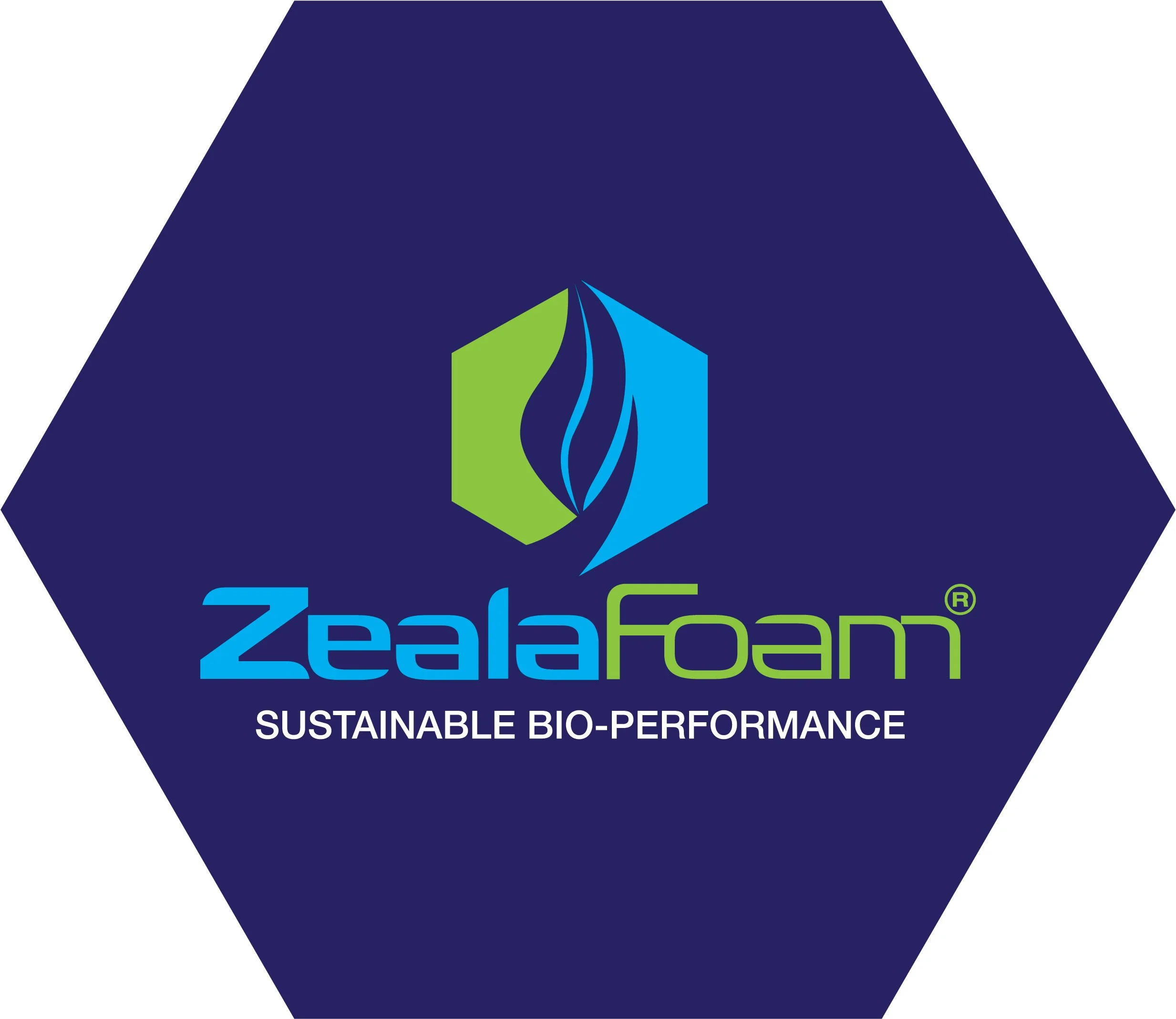ZealaFoam: On a mission to be the plant-based packing alternative
Expanded polystyrene (EPS), often referred to as Styrofoam, is celebrated for its thermal insulation properties and energy-saving advantages in construction and packaging. Nevertheless, it comes with significant negative environmental consequences that deserve our focus.
Being non-biodegradable and requiring centuries to break down, EPS poses a serious threat to land and marine ecosystems, endangering wildlife through ingestion and entanglement. Moreover, recycling complexities, toxic emissions in its production and incineration, being made form non-renewable resources and the degradation of air quality further exacerbate the needs for an environmentally friendly alternative.
You might have observed the shift in your beloved restaurants and coffee shops as they replace the once familiar Styrofoam cups and clam shells with cardboard and PLA packaging. Polylactic acid or polylactide (PLA) is a polyester made from renewable biomass, typically from fermented plant starch like corn, cassava, sugarcane or sugar beet pulp.) However, there's still a need for an alternative when it comes to cold chain packaging boxes used by meal delivery services, or the packaging used to deliver vaccines around the world. Enter ZealaFoam, stepping in to fill this gap.
Utilising patented technology, ZealaFoam offers a seamless solution, enabling EPS manufacturers to effortlessly produce PLA-based products by substituting the impregnation stage with ZealaFoam's core technology.
Meet Sarah Heine the newly appointed CEO of ZealaFoam, the joint venture between BVNZ and BioPolymer Network (BPN), created to spearhead a transformative change in the EPS industry. Sarah is no stranger to the field, having dedicated over a decade to working with BPN. Her leadership and expertise have been instrumental in fostering collaborative research over the last decade with renowned Crown Research Institutes in NZ, to overcoming technical obstacles of the ZealaFoam technology.
“It has been quite a journey getting from lab bench to the boxes and loose fill we see today. Creating a functional, commercially viable plant-based expandable foam has proven a huge challenge, one of the reasons that this is a world leading technology and we are very excited to be bringing this product in to the market.”
Already having validated the technology through the successful B2C sales of EcoBeans, a sustainable beanbag fill, Sarah is now eyeing a broader market beyond the $882 million beanbag industry. By moulding foamed PLA, she aims to conquer the packaging sector, estimated at $9 billion, with a focus on the $3.6 billion cold chain packaging market. The first application, fuelled by this round of funding, will target fish boxes and vaccine carriers harnessing the unique properties of ZealaFoam.
BVNZ is excited to lead the seed funding for ZealaFoam.
At the heart of our decision lies the alignment with our commitment to sustainability and environmental consciousness. ZealaFoam's vision goes beyond profit; they aspire to create a lasting impact and foster sustainable outcomes on a global scale.
Our decision was also informed by compelling market research, which revealed a strong demand for a true plant-based insulated packaging option, a result of a changing legislative landscape. Customers are willing to embrace PLA, and accept a 15-40% “green premium” on sustainably manufactured products, making the market potential even more promising.
“Working with a new material always comes with additional challenges, especially in key areas such as price competitiveness and disposal infrastructure. While the lower production volumes make biobased plastics more expensive at this stage, the current exponential growth in global production is already starting to have a positive impact on price and this trend is forecast to continue as more and more PLA production plants are being commissioned worldwide.”
The Zealafoam product is not just a greenwashing gimmick; it boasts superior sustainability credentials compared to EPS. With PLA resin manufacturing emissions at a mere 17% of polystyrene resin and the production process emitting 85% less CO2, the environmental benefits are evident. Although Zealafoam can be safely industrially composted, it's important to acknowledge that New Zealand like many countries globally currently lacks well-established infrastructure for this. We believe there are signs this is changing with regulatory and legislative pressure, incentivizing companies to invest in the necessary infrastructure. Nonetheless, Zealafoam is perfectly poised to be the leading plant-based alternative to traditional EPS, even when disposed of in a landfill. Unlike many traditional plastics, Zealafoam decomposes safely to carbon dioxide, water and humus in the right conditions. Our shared vision is that by driving demand for EPLA, the industry will invest in the necessary infrastructure to meet this demand, enabling the proper disposal of all PLA-based products. This would be a significant step towards achieving a circular economy.
“As the world acknowledges the urgent need to change: the materials we use, their consumption and their disposal, particularly in packaging, the demand for biobased plastics such as PLA is growing exponentially. This in turn is driving new infrastructure and new thinking in how best to address the difficult issues around end-of-life options and to capitalise on the opportunities for disposal presented by biobased plastics. This is constantly and rapidly evolving which is exciting.”
As BVNZ, we are excited to provide the support needed for ZealaFoam as they scale to new market opportunities and expand globally. Our investment in ZealaFoam and their PLA technology is not just a financial endeavour; it is a conscious effort to be part of the solution, fostering sustainability and driving meaningful change in the plastics market.
Further information on Zealafoam can be found here.



